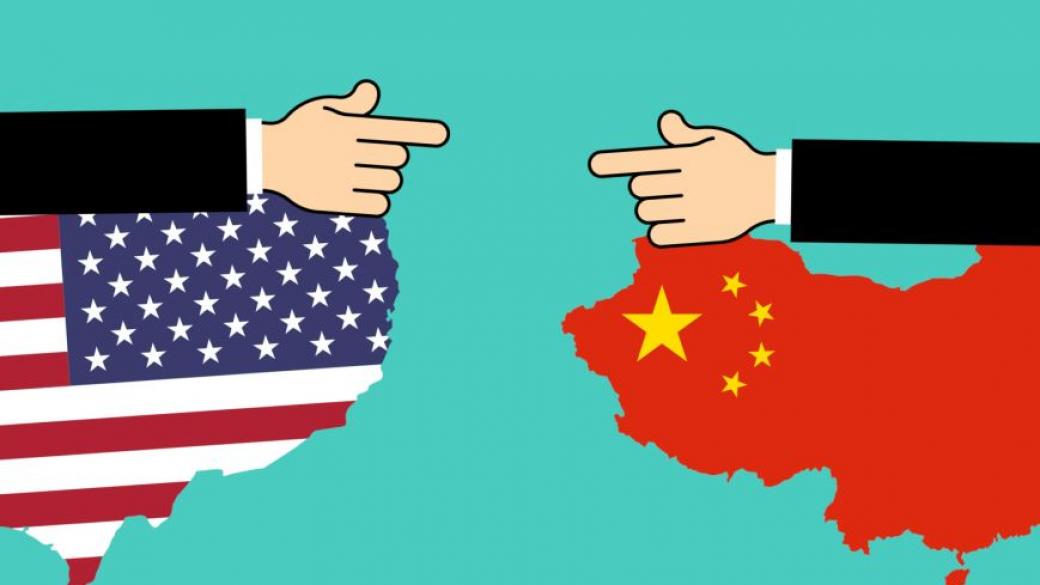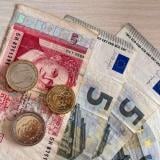What Is the Purpose of Trump’s Trade War
The EU could take advantage of the controversy between the United States and China, Iran and Russia, but it does not want to lose favour with the White House

© ECONOMIC.BG / Pixabay
“Higher prices. Disturbances in supply chains. Shrinking exports. These are some of the ways in which Europe's largest companies have been affected by President Trump's trade war. These effects serve as a demonstration of how global trade controversies could tear the European economy,” New York Times Magazine wrote at the beginning of August.
At the end of the same month, USA Today was
already drawing a gloomy business picture, only in the US: “The profit of a
farmer from Illinois quickly turned into a loss after the corn, soy bean and
pork prices dropped. A Florida boat builder pays millions of dollars to its
dealers in Canada, Europe and Mexico to partially overcome the effect of the
duties in these countries, taking away the bonuses of US workers. A brewery
spends more on aluminium cans, thus saying goodbye to any plans for recruiting
new employees. These are the pictures of anxiety in the escalating trade war,
which started to affect various companies across the country. Many of them pay
more for imports of raw materials, suffer declining sales abroad (or both), and
are forced to currently stop hiring new employees or investing.”
Trump is consistently fulfilling the promises from
his pre-election program - including reconsideration of trade relations with
allies and “competitors.” The first results of his outrageous policy are
already visible. On 27th August, Trump announced that a pre-agreement
with Mexico was reached for a new trade deal, which could replace the “bad
sounding” NAFTA (free trade zone between the US, Canada and Mexico). The president
threatened to introduce car duties against Canada, if Ottawa does not agree “to
negotiate honestly”. “We will call it (the agreement with Mexico) an
American-Mexican trade agreement,” Trump said triumphantly.
The American president is implementing his plan,
but what is his real purpose? The economist Milton Ezrati gives a possible
conceptual framework to view Trump's policy. He writes in The National Interest
that after the Second World War, the regulation of international trade went through
two stages. In the first, until the beginning of 1980s, it was regulated at a world
level and under the pressure of the US, customs duties were reduced globally.
In the second stage, which continued until Trump's coming into power,
international trade regulation was carried out through bilateral or
multilateral trade agreements. They favour the signing parties, but not the
other countries.
According to Ezrati, Trump strives to change the
status quo. It is not quite clear, however, which one of the two stages he
undermines. According to the expert, on the one hand, Trump constantly says he
wants a “better deal” in trade relations, which shows loyalty to the new
approach in trade regulation. On the other hand, while at the G7 forum in
Canada, Trump said he wanted to eliminate trade barriers and incentives
everywhere. And this brings him close to the supporters of the “oldfashioned”
approach to trade regulation.
After the meeting between the President of the European
Commission Jean-Claude Juncker and Donald Trump at the end of July in the White
House, it was announced that for the moment the EU will not be sanctioned with
large duties on its exports to the US. Trump's sanctions and duties against
Russia, Iran and China are an opportunity for the EU to establish itself
internationally. But Brussels does not want to lose its economic connection
with the United States. That is why it needs the well-disposed American
government. The US trade enemy has to be a different one.
At the end of August, Politico wrote that currently,
there is a US-European front against China's “dishonest trade practices,” which
is being transferred to the World Trade Organisation (WTO), where it also has
the support of Japan. The idea is to establish the rules of the WTO and to force
China to adopt new conditions so that “the players are on equal grounds,” that
is, to facilitate the access of European and Western companies to the Chinese
market.
According to Politico, the problem of Brussels is
that no one can say exactly whether the US president will stick to the action
plan described earlier by Senator Lindsey Graham: first, negotiations with
regard to NAFTA, then cancelling the introduction of duties on the EU and
finally - “focusing on China”. Will Trump, however, consider it rational to
introduce higher duties for European cars in the future if he senses an
opportunity for profitable deals with China?
In China, people are aware that Trump's battle
is probably not to limit Chinese imports to the US, but to make more foreign
companies transfer their production from the Asian giant to the United States.
The professor of Economics and Director of the Institute for China and Global
Development at the University of Hong Kong reminds that his country's entry
into the WTO in 2001 eliminated the uncertainty about customs duties on Chinese
exports. It also led to the turning of China into one of the largest direct
foreign investment recipients that transformed its economy. In the first six
months of 2018, 41.58% of Chinese world exports were made by foreign
multinational companies. The expert's advice is to prevent the production from
returning to the US by making it difficult for US companies to access the
Chinese market if they do not invest in China.
Within the described reality,
uncertainty dominates geopolitics, and it is difficult to draw final
conclusions about the future policy of global players in trade. But is there
another war happening in parallel with the trade wars - who will manage to set
foot in China and how - in union with the other Western competitors or at their
expense? The escalation of the duty war between Washington and Beijing will
continue. Will the EU be able to take advantage of the controversies taking
place between the US and Iran, China and Russia without alienating its
important transatlantic partner? The most interesting is yet to happen...














